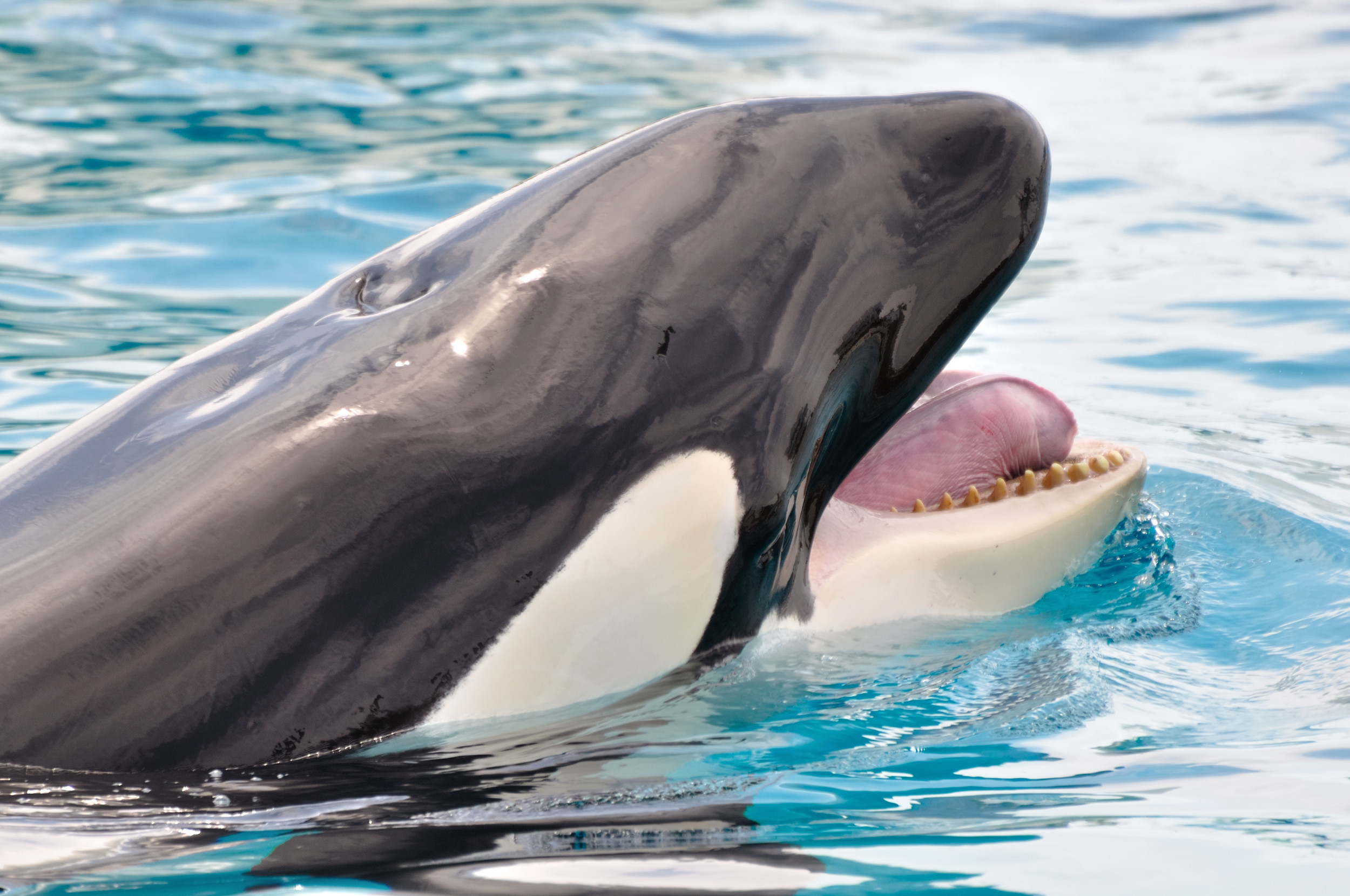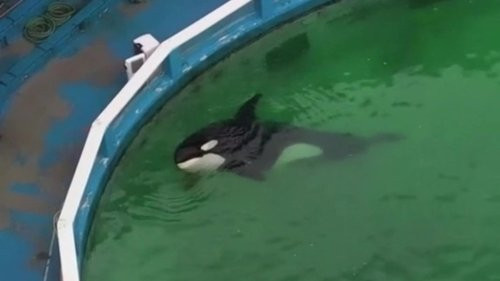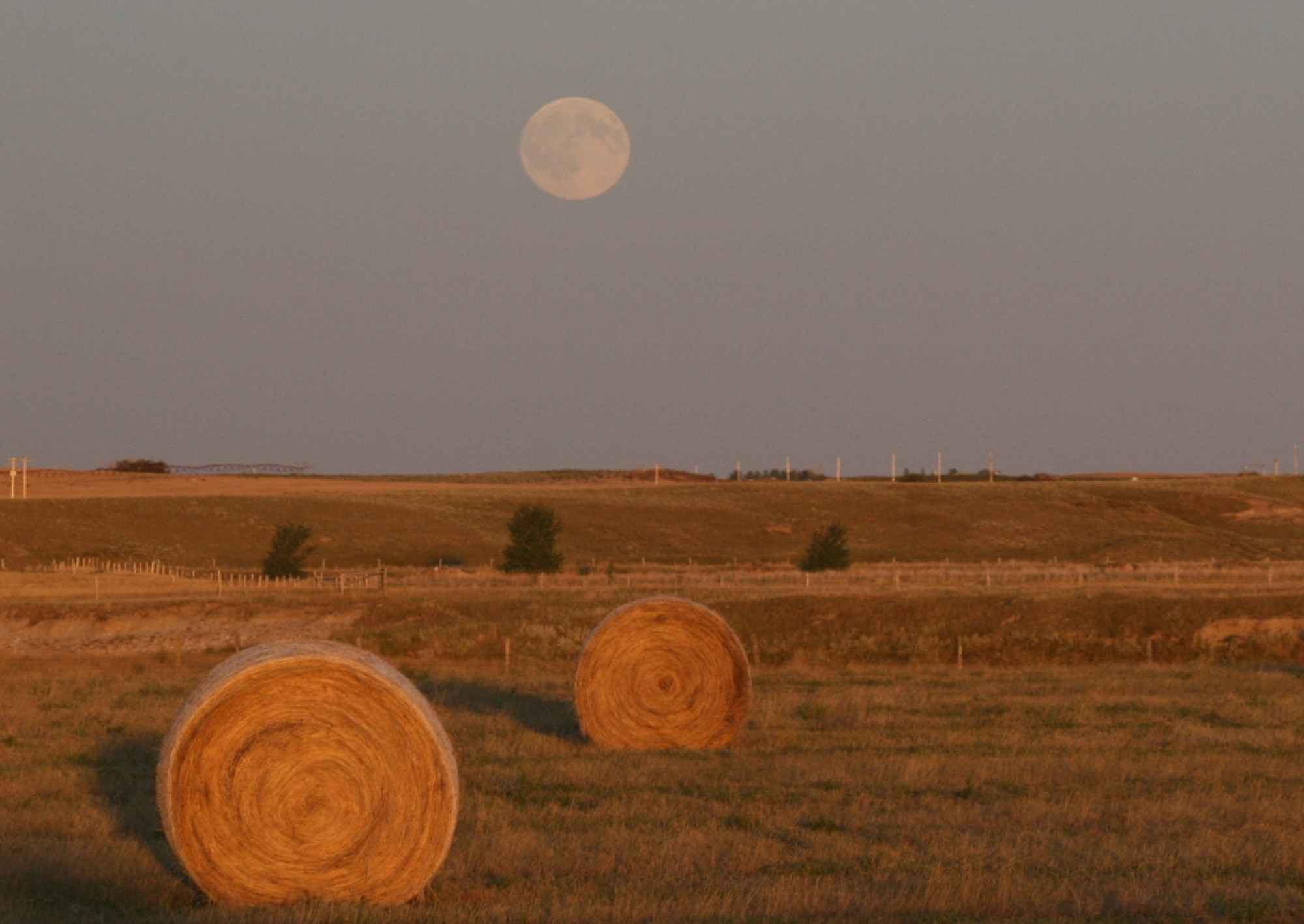Kshamenk, who has been dubbed the 'world's loneliest orca', was seen in the video staring at a gate in the water for '24 hours straight' at the oceanarium called Mundo Marino.
You can see the devastating footage below:
The 35-year-old orca was brought in to the aquarium back in 1992 and has reportedly stayed there ever since.
Mundo Marino say they found Kshamenk beached on the bay when he was three years old alongside three other whales.
They claim that Kshamenk was then swiftly taken to a concrete tank at the aquarium, spending the past 32 years in a very small space.
Up until 2000, he was joined by female tankmate Belen who sadly died that same year.
"Belen became pregnant with his first calf but delivered a stillborn in 1998. She became pregnant again the following year but died while pregnant in 2000," the Whale Sanctuary Project said.
This means that Kshamenk has spent the last 24 years on his own.
The orca is now kept in a shallow, cramped pool while charities are calling to move him to an open sanctuary with other whales.
Kshamenk's Isolation and the Campaign for His Release
A 24-hour timelapse clip has since been shared online and it shows the orca barely making a move in the compact space.
The organization is campaigning to bring Kshamenk to a sanctuary with other orcas.
UrgentSeas' Appeal for Kshamenk's Release
A spokesperson from UrgentSeas said: "We continue to work with Argentinian activists and members of Congress to try to highlight and address his cruel world.
"He needs to be removed from his tiny concrete tank and to join other members of his species before it’s too late."
Concerns About Releasing Kshamenk
However, some experts argue that releasing Kshamenk into the wild could be dangerous.
According to the Dolphin Project, a 2006 Wild Earth Foundation study wrote that 'Kshamenk’s population of origin is unknown, as well as his home range, and there is no data of any kind regarding killer whales found along the coast of North Buenos Aires. Thus, a reintroduction was not feasible'.
They also noted 'if Kshamenk is released in the wild, he may revert to a previous pattern of behaviour that may put him in danger, such as begging for food or seeking human contact'.
An Alternative: A Sanctuary for Kshamenk
While releasing Kshamenk into the wild may not be feasible, organizations like the Whale Sanctuary Project advocate for creating sanctuaries for captive whales.
Mundo Marino's Response
Mundo Marino, in a statement dated June 27, 2024, maintains that Kshamenk is in excellent health.
The aquarium states that "a team of three veterinarians and eight keepers, supported by seven external specialists, conduct monthly checks as part of a rigorous preventive medicine plan."
The aquarium also argues that releasing Kshamenk into the sea or a sanctuary would be "impossible without putting his life at serious risk."
They further assert that "adapting Kshamenk (a geriatric animal who has already exceeded his life expectancy) to this dynamic would be impossible, as his survival would depend on both his acceptance by a new group of orcas and his ability to hunt independently, both highly unlikely."
The Ongoing Debate
The situation of Kshamenk highlights the ongoing debate about the ethics of keeping orcas in captivity.
While Mundo Marino maintains that Kshamenk's health is monitored closely, critics argue that his isolation and confinement are cruel and inhumane.
The debate is likely to continue as organizations like UrgentSeas continue to advocate for Kshamenk's release and the creation of sanctuaries for captive whales.


















